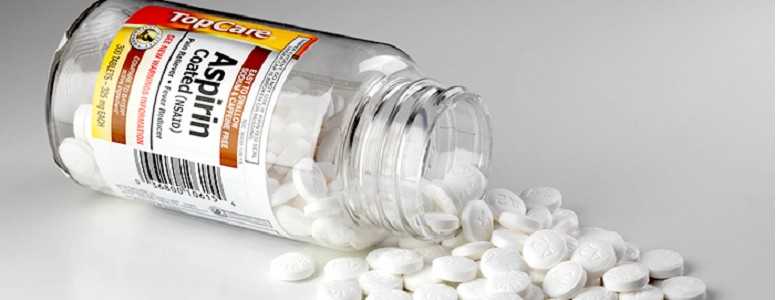Aspirin has been linked with both positive and negative effects in a new trial involving people with diabetes.
The ASCEND (A Study of Cardiovascular Events in Diabetes) trial was carried out to investigate the effects of aspirin on the prevention of first cardiovascular events. This means the trial looked to see whether aspirin could prevent people from developing a first heart attack, stroke, transient ischemic attack (sometimes called a mini-stroke) death from heart disease.
Previous studies have suggested possible benefits, so the ASCEND trial has set out to rigorously test how beneficial aspirin may be within people with diabetes specifically.
The study involved randomly assigning 15,480 adults with diabetes (of any type of diabetes) to two different groups. One group was given 100 mg of aspirin daily and the other received a placebo. The participants were recruited between 2005 and 2011 and were then monitored to record how many of them experienced a serious vascular event or major bleed over the subsequent years.
The results showed that the group taking aspirin had fewer heart and vascular events but had a greater number of major bleeds. The most common type of serious bleeds was gastrointestinal bleeding (bleeding within the gut).
Professor Jane Armitage, principal investigator, Nuffield Department of Population Health, University of Oxford, said: “We have shown conclusively in ASCEND that aspirin reduces the risk of vascular events in primary prevention, as it does in people who already have cardiovascular disease, but these benefits are counter-balanced by the number of major bleeds caused by aspirin.
“This is an important finding with implications for many millions of people who have diabetes but have not yet had cardiovascular events. Current clinical guidelines vary in their recommendations about the use of aspirin for primary prevention because of a previous lack of clear evidence. The results of ASCEND now provide much needed clarity.”
The findings, which were recently unveiled at the European Society of Cardiology Congress in Munich, showed 685 (8.5%) participants in the aspirin group experienced a serious vascular event. This compared with 743 (9.6%) within the placebo group.
Broken down, this meant 11 of every 1,000 volunteers involved in the trial avoided a serious vascular event during the trial as a result of taking aspirin.
However, there were negative results of aspirin use in terms of higher chance of having a first major bleed. In the aspirin group 314 (4.1%) people had a serious bleed, compared with 245 (3.2%) participants in the placebo group. This suggests that nine out of 1,000 trial volunteers experienced a major bleed for the first time because of taking the medication.
The British Heart Foundation (BHF) and Diabetes UK each part funded the research. The BHF’s Associate Medical Director Professor Jeremy Pearson said: “This large clinical trial shows the benefit of taking aspirin to reduce the risk of a first heart attack or stroke is small, and it’s balanced by the increased risk of bleeding. Therefore, it cannot be recommended.”
The researchers will continue to monitor the participants within the ASCEND trial to continue reviewing the longer-term effects.
The study is published in the New England Journal of Medicine.
What's new on the forum? ⭐️
Get our free newsletters
Stay up to date with the latest news, research and breakthroughs.







